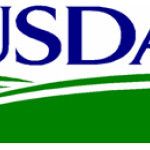- Industri: Government
- Number of terms: 41534
- Number of blossaries: 0
- Company Profile:
Land, other than prime farmland, that has combined conditions to produce sustained high quality and high yields of specialty crops, such as citrus, nuts, fruits, and vegetables when properly managed.
Industry:Agriculture
The contractual arrangement governing transactions between the Farm Service Agency and private grain storage companies. Commercial warehouses storing grain under a nonrecourse loan or owned by the CCC must have a signed USGRSA.
Industry:Agriculture
For purposes of Subtitle I of the Resource Conservation and Recovery Act, this is any tank used to store petroleum or hazardous substances regulated under the Comprehensive Environmental Response, Compensation, and Liability Act, the volume of which is 10% or more beneath the surface of the ground. This does not include, among other things, any farm or residential tank of 1,100 gallons or less capacity used for storing motor fuel for noncommercial purposes, tanks used for storing heating oil for consumptive use on the premises, or septic tanks.
Industry:Agriculture
Any farm program system under which commodities grown for domestic use are supported at one level and those grown for export markets at another, lower level. The peanut price support program uses a two-tiered pricing system.
Industry:Agriculture
Also called the flexible base plan. A proposal under which farmers who raise program crops would receive program payments only on a certain percentage of their permitted acreage. A producer participating in a federal price support program actually would have three categories of base acres for program purposes: 1) permitted acres on which deficiency payments would be made; 2) permitted acres on which no federal payments would be made, but could be planted to other crops, either specified or unspecified; 3) idled acres (those required to be set aside under acreage reduction rules) where no crops other than those for conservation could be planted. Triple base is another name for what came to be known as normal flex acres. Production flexibility contracts now have eliminated the linkage between payments and actual plantings.
Industry:Agriculture
Method in which water drips to the soil from perforated tubes or emitters. This irrigation technology is water conserving compared to flooding, furrows, and sprinklers.
Industry:Agriculture
A timber sale where purchasers pay the total bid value (the estimated timber volume times the stumpage price) regardless of the volume of timber actually removed.
Industry:Agriculture
A disaster assistance program, administered by the Farm Service Agency, that makes payments for lost orchard trees and vines that produce annual crops. The program has been funded on an ad hoc basis, usually by emergency supplemental appropriations. Most recently, the program was funded for losses incurred between October 1, 1997, and September 30, 1998.
Industry:Agriculture
Refers to the primary export of U.S. farm products to certain countries (notably Canada and the Netherlands) and their further shipment to other countries. Unless there is "adjustment for transshipment," export statistics can reflect a distorted picture.
Industry:Agriculture
A World Trade Organization principle stipulating that a country’s policies and regulations affecting foreign trade should be clearly communicated to its trading partners. For example, out of recognition that sanitary and phytosanitary measures may (sometimes deliberately) be unclear, arbitrary, or capricious, recent international trading agreements have provisions calling on countries to notify others, in advance, about any measures that could affect trade, to fully explain them, and to provide a means for commenting on them.
Industry:Agriculture
